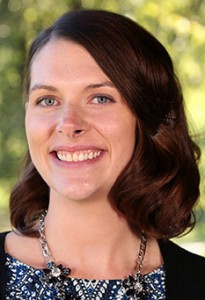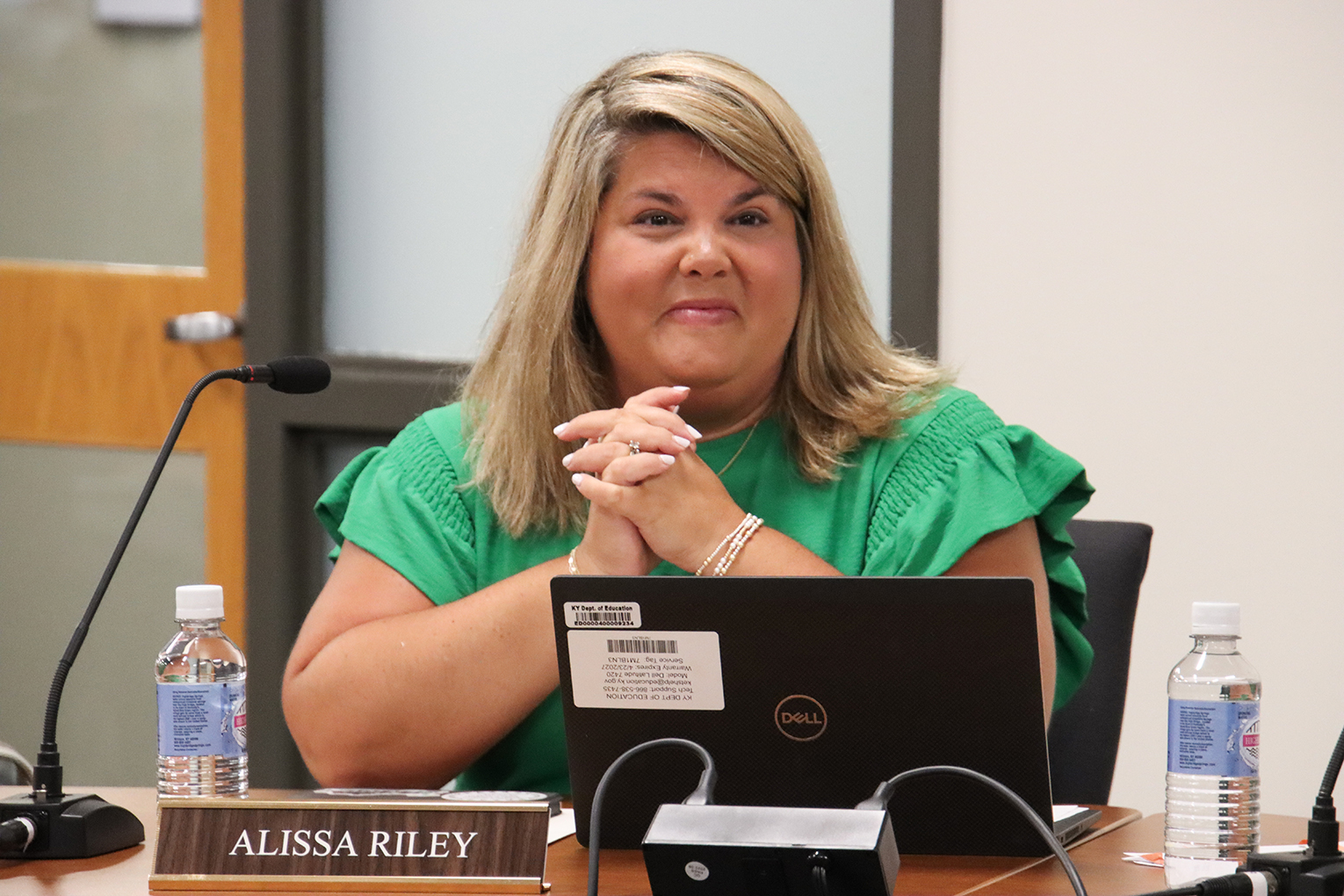
Ashley Lamb-Sinclair
By Ashley Lamb-Sinclair
ashley.lamb-sinclair@education.ky.gov
We all know that faculty meetings are the worst. They didn’t invent Faculty Meeting Bingo with phrases like “knowing glance exchanged with a colleague” and “general sense of doom” because it’s a fun place to be. In fact, I would argue that many teachers would include faculty meetings in the top five of a list of things we most dislike about our job. And I am among them.
So it was not a pleasant realization early in my time as teacher in residence at the Kentucky Department of Education when I discovered that sitting in meetings would be a big part of what I would do. Don’t get me wrong, many of the topics in the meetings have been interesting, even fascinating, but I generally loathe being in a meeting for longer than half an hour, 45 minutes tops.
Yet, I sit in them. I listen and I take notes.
One such meeting a few months ago was a Senate Education Committee meeting right at the height of the legislative session. The topic of discussion was a significant bill that had the potential to change our daily practice as classroom teachers. I had a stake in this claim. This particular meeting mattered to me because it mattered to my colleagues and my students. There were no bingo boards here.
When the meeting ended, I watched as the senators dispersed, talking to other legislators, education partners and the press. I started to feel uncomfortable sitting there as the room emptied, so I got up and wandered to the door, all the while listening to one senator speaking passionately about a particular bill. I had little experience with legislation or senators, so I felt like I was out of my element. But as I walked to the door, my ears perked up as I heard him speak about the work we do in classrooms across the state, knowing that just as I felt unfamiliar with his world, he must also have felt unfamiliar with mine.
The difference was that what I thought about his world might have had little influence on legislation, but what he thought about my world in the classroom could drastically change education in Kentucky.
I circled that room awkwardly as he finished up his conversation. I took a couple of steps toward him and then backed up timidly toward the door. Finally, I put down my handy teacher bag, marched over to him, shook his hand and spoke to him person-to-person about the importance of opening dialogue between our worlds.
Because of that conversation, my colleagues had the opportunity to sit down with several legislators and talk about their work. And because of that conversation, my colleagues and I are working side by side with some of these legislators on initiatives to bridge the gulf that exists between the Capitol and the classroom.
So, yes, as teachers, we hate meetings. We hate listening yet again to the “general sense of doom” we often feel when others talk about our work in the classroom. And it is easy to pick up our stuff at the end of the meeting, ignore the conversations that continue when it’s over, walk out and go back to our classroom where we feel safe. But I encourage all of us to stop and think before we walk out and to put down the bingo card when we feel that sense of doom. Because, really, that sense of doom comes from feeling like we don’t have a voice in the decisions that impact classroom work; which is ironic since we’re the ones who do it.
If you had told me six months ago to write to my legislator about a problem that frustrated me, I would have presented you with an epic eye roll. But now, I see that those legislators want and need to hear from us, as do our colleagues, principals, superintendents and leadership at KDE. They need to hear our concerns AND our solutions. If they don’t, they will continue to make decisions without us.
So as the school year winds down, if you find yourself in a meeting and you’re tempted to pull out the bingo card, your phone or whatever you use as a distraction, consider raising your hand instead. You never know what good could come from speaking up.
Ashley Lamb-Sinclair is the 2016 Kentucky Teacher of the Year, a National Board certified teacher and is in her 10th year of teaching. She has taught in Fayette and Jefferson counties and now teaches English and creative writing at North Oldham High School (Oldham County). She currently is on sabbatical from her classroom and working at the Kentucky Department of Education.



As someone who has worked for the legislature in earlier years, I can say that they truly listen when we speak up or write them about our issues and concerns. AND if we don’t take the time to speak up, they can’t be blamed for things they do that we don’t like.